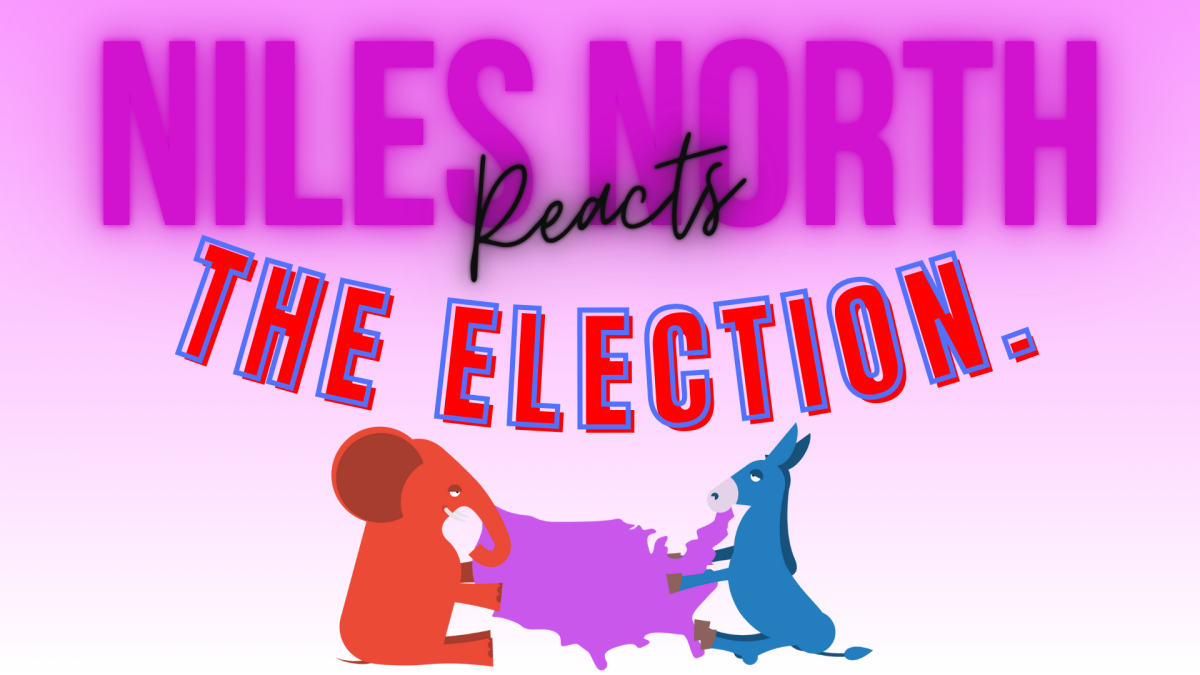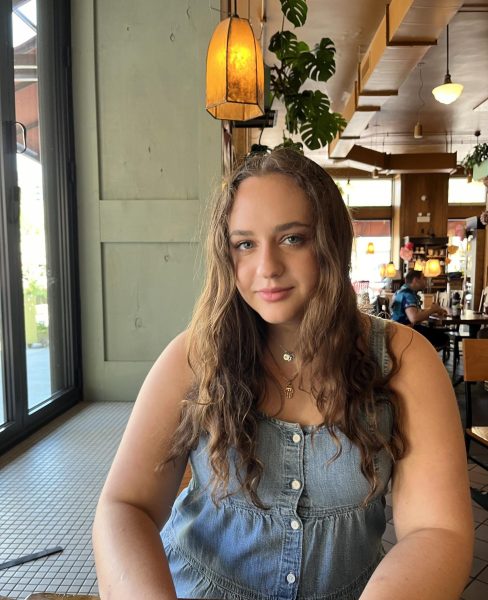The residents of Skokie, along with the rest of the nation, tentatively watched their screens on Nov. 5, awaiting the results of a momentous election. Upon discovering that former president Donald Trump was reelected, students of Niles North had mixed reactions: some strong and some indifferent, some disappointed and some ecstatic.
“I was personally very happy because I just felt like the past four years have been a mess,” an anonymous senior said. “Just like all the wars and everything going on.” The student also mentioned that “potentially stopping wars, bringing world peace and even maybe helping the women in Afghanistan” were prospects they were excited about for the next Trump presidency.
Excitement was not unique to this senior. “Me and my mom stayed up until 2:30 in the morning watching it and we celebrated,” junior Jaden Schwartz said. “We were really happy about it.”
Meanwhile, many students felt indifferent about the results. “Honestly, I don’t think the election results affect me that much,” another anonymous senior said. “As a high school student, I don’t think it will affect us as much as people make it seem.”
Additionally, senior Armana Rizvi shared a sense of predictability: “I wasn’t really surprised as to how Trump won.”
Rizvi attributed her lack of surprise to the two-party system. “There’s this whole big push to vote third-party and not in the two-party system,” Rizvi said. “But I didn’t think that was gonna happen, because the people that usually vote are just starting to now change. But the people that are voting, the majority of them are old white people in the traditional mindset.”
Niles North students also have reported negative thoughts toward the outcome of the election. “I was disappointed. This could affect me a lot because he wants to leave abortion access up to the states,” junior Arlynne Tanghal said. “He’s also trying to take away birth control, which a lot of women depend on, not just for sex, but for controlling their periods because of how much it affects them in their daily life.”
Tanghal also explained the fear she has for her family. “We’re just a middle-class family full of immigrants and women, so we’re exactly what he’s targeting.”
Likewise, Rizvi explained how her fears echo from the first Trump presidency. “When Trump was president for the first time, there was a Muslim [travel] ban. I’m Muslim, and my friends are also Muslim. I think a rise of hatred might occur towards people of color.”
Despite such a diversity of opinion, students who shared views from each side, along with those who fell in between, emphasized beliefs that practicing unity and political research should be at the forefront of political conversations, and that mutual respect should transcend party affiliation.
“I don’t think that we should be going against each other. You might as well just be supportive of your peers,” Schwartz said.
“Before you have opinions, you need to get educated,” Tanghal said.
















Jazmyn Bowker • Dec 14, 2024 at 2:26 pm
My biggest thing is that, very clearly, Donald Trump is a future dictator. He’s a homophobe, racist, transphobic prick. As a school, if we’re trying to lift up these minorities and make sure everything is equal, Trump supporters are actively supporting the removal of our rights.